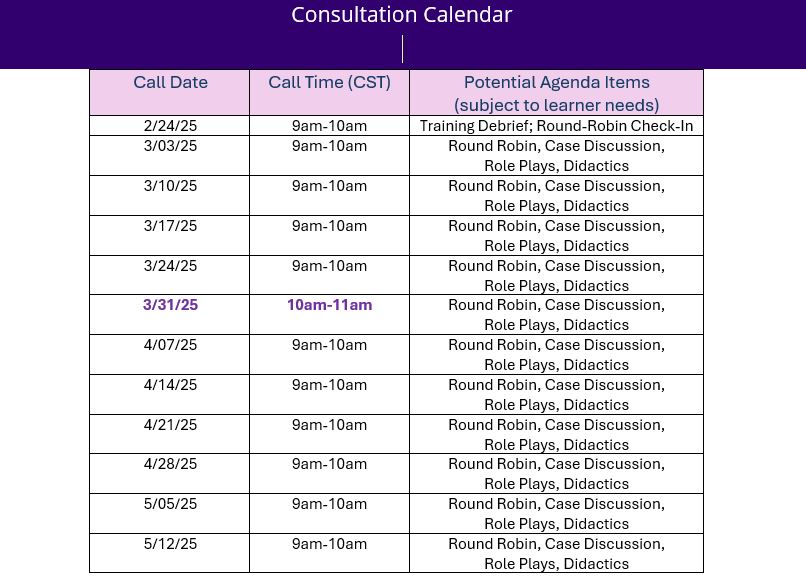This virtual training DOES NOT result in CBTp certification.
Cognitive Behavioral Therapy for psychosis (CBTp) is an individualized, evidence-based psychological treatment for individuals with psychotic disorders. The primary goals of CBTp are to reduce the distress associated with the symptoms of psychosis and to improve functioning and quality of life for the person experiencing psychotic symptoms.
CBTp Training Program:
This virtual training program will consist of three 4-hour training sessions on February 19-21, 2025 (9:00am-1:00pm CST) followed by a series of twelve 50-minute consultation calls. The training sessions will orient mental health practitioners to the theory, evidence-base, and application of CBTp.
Workshop Learning Objectives include:
• Articulate the rationale and primary goals associated with CBTp
• Understand the fundamental principles of CBTp and associated stylistic and structural components
• Rehearse CBTp strategies that target distress and disability associated with psychosis
Consultation Calls:
Calls will begin Monday, February 24, 2025 and conclude on Monday, May 12, 2025. See full Consultation Calendar below.
Cancellations, Substitutions and Refunds Policy:
Live In Person/Virtual Trainings:
• A colleague may be substituted at no extra charge if Centralized Training is notified at least two business days before the training.
• Requests for refunds for an in-person/virtual workshop must be received 72 hours prior to the workshop.
Self-Paced Online Trainings:
• No refunds are offered for self-paced online trainings.
Please forward detailed requests regarding this training to CTI Helpdesk at ctihelp@uthscsa.edu.
Training Location: Zoom Meeting
Webcam and audio are required for participation.
9:00am-1:00pm CST
Trainer: Dr. Sarah Kopelovich, PhD
CEUs Offered: 12 hours

